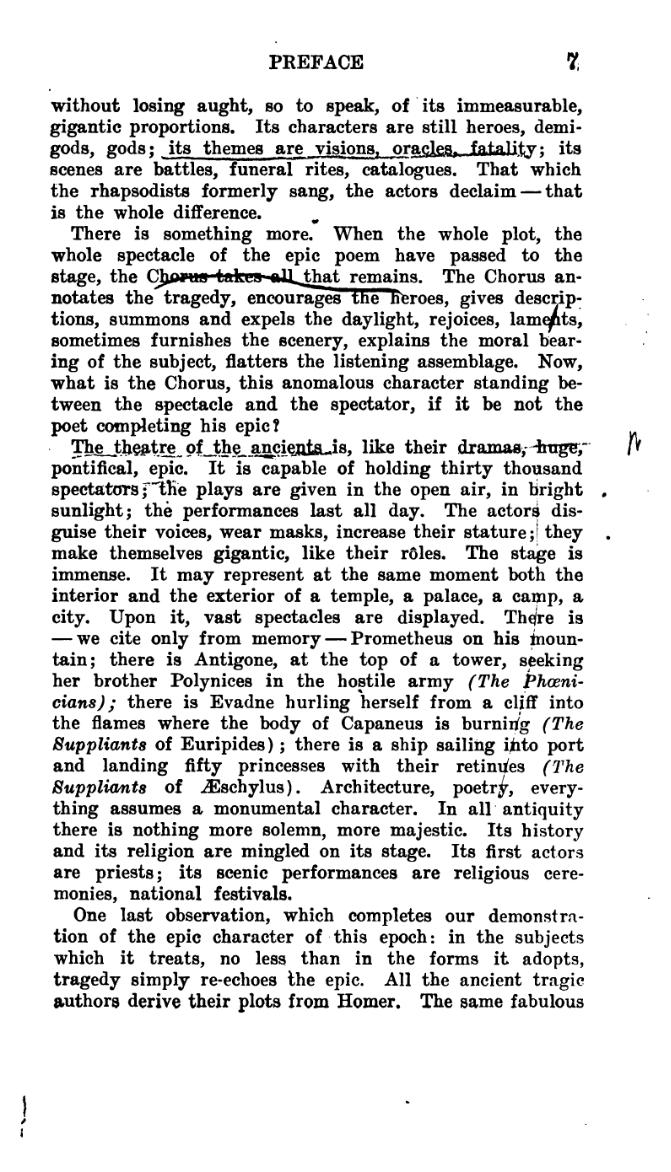without losing aught, so to speak, of its immeasurable, gigantic proportions. Its characters are still heroes, demigods, gods; its themes are visions, oracles, fatality; its scenes are battles, funeral rites, catalogues. That which the rhapsodists formerly sang, the actors declaim—that is the whole difference.
There is something more. When the whole plot, the whole spectacle of the epic poem have passed to the stage, the Chorus takes all that remains. The Chorus annotates the tragedy, encourages the heroes, gives descriptions, summons and expels the daylight, rejoices, laments, sometimes furnishes the scenery, explains the moral bearing of the subject, flatters the listening assemblage. Now, what is the Chorus, this anomalous character standing between the spectacle and the spectator, if it be not the poet completing his epic?
The theatre of the ancients is, like their dramas, huge, pontifical, epic. It is capable of holding thirty thousand spectators; the plays are given in the open air, in bright sunlight; the performances last all day. The actors disguise their voices, wear masks, increase their stature; they make themselves gigantic, like their rôles. The stage is immense. It may represent at the same moment both the interior and the exterior of a temple, a palace, a camp, a city. Upon it, vast spectacles are displayed. There is—we cite only from memory—Prometheus on his mountain; there is Antigone, at the top of a tower, seeking her brother Polynices in the hostile army (The Phœnicians); there is Evadne hurling herself from a cliff into the flames where the body of Capaneus is burning (The Suppliants of Euripides); there is a ship sailing into port and landing fifty princesses with their retinues (The Suppliants of Æschylus). Architecture, poetry, everything assumes a monumental character. In all antiquity there is nothing more solemn, more majestic. Its history and its religion are mingled on its stage. Its first actors are priests; its scenic performances are religious ceremonies, national festivals.
One last observation, which completes our demonstration of the epic character of this epoch: in the subjects which it treats, no less than in the forms it adopts, tragedy simply re-echoes the epic. All the ancient tragic authors derive their plots from Homer. The same fabulous
